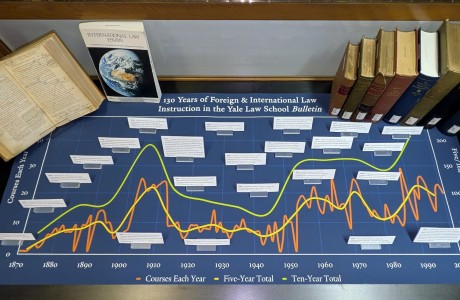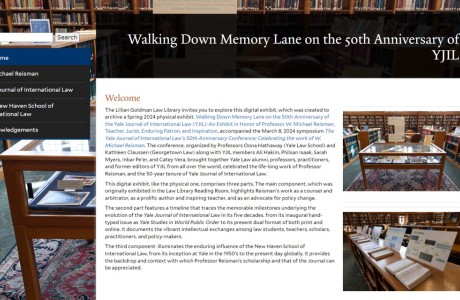British Terror Suspects Face US Extradition
On April 10, 2012 the BBC reported that the European Court of Human Rights in Strasbourg has backed the extradition of Abu Hamza, Babar Ahmad, and two other terror suspects from the UK to the US. The case of one suspect is facing further deliberation because of mental health issues. The court approved extradition after determining that US maximum security prisons meet human rights qualifications.
Assuming extradition takes place, most of the convicted terrorists in this case would most likely "be held in solitary confinement at ADX Florence, a Federal Supermax jail in Colorado," known as the Alcatraz of the Rockies. "Solitary confinement is a regular way of life in supermax regimes, with prisoners locked up for at least 23 hours each day."

Abu Hamza (Associated Press)
Abu Hamza is "wanted in the US on 11 charges related to taking 16 hostages in Yemen in 1998, promoting violent jihad in Afghanistan in 2001 and conspiring to set up a jihad training camp in Oregon."
Although an appeal in the Grand Chamber is still possible for the next three months, it is highly unlikely. After this time, extradition can take place. Babar Ahmad, who was held for a record of eight years before put on trial, insists on fighting extradition to the US because his crimes were committed in the UK.

Babar Ahmad (2003 mugshot)
According to a BBC Broadcast replayed on National Public Radio's "All Things Considered" on April 9, 2012, Ahmad claims that he has never been shown the evidence supposedly implicating him or questioned about the allegations held against him. "US prosecutors accuse Ahmad of leading a terror suspect cell from his South London home, channeling funds to jihadist groups and creating one of the first and more influential of the Islamist extremist websites." Because the site originated in the UK, Ahmad argued that extradition to the US is unnecessary.
“The US claims jurisdiction because the British-based site used an American service provider,” making this a cross-border terror case that allows for speedy extradition thanks to a treaty signed between the US and the UK just days after 9/11.
Babar Ahmad was indicted in the District of Connecticut because one of the servers for the website was located in the state. Access the District of Connecticut Grand Jury indictment and the warrant/complaint for Ahmad’s to appear before a magistrate judge in the District of Connecticut, here in New Haven.
The following is an excerpt from the case:
For both indictments, the material support is alleged to have been provided through a series of websites, one of whose servers was based in Connecticut. The charge of conspiracy to kill, kidnap, maim or injure persons or damage property in a foreign country is based on two allegations: first, that the websites exhorted Muslims to travel to Chechnya and Afghanistan to defend those places; and second, that classified US Navy plans relating to a US naval battle group operating in the Straits of Hormuz in the Persian Gulf had been sent to the website. The plans are alleged to have discussed the battle group’s vulnerability to terrorist attack.
“Pursuant to Article IV of the Extradition Treaty Between the Government of the United States and the Government of the United Kingdom of Great Britain and Northern Ireland, the Government of the United States hereby assures the Government of the United Kingdom that the United States will neither seek the death penalty against, nor will the death penalty be carried out, against Babar Ahmad upon his extradition to the United States.
The Government of the United States further assures the Government of the United Kingdom that upon extradition to the United States, Babar Ahmad will be prosecuted before a Federal Court in accordance with the full panoply of rights and protections that would otherwise be provided to a defendant facing similar charges.
Pursuant to his extradition, Babar Ahmad will not be prosecuted before a military commission, as specified in the President’s Military Order of November 13, 2001; nor will he be criminally prosecuted in any tribunal or court other than a United States Federal Court; nor will he be treated or designated as an enemy combatant...”
In a decision given on 17 May 2005, the Senior District Judge ruled that the extradition could proceed and that, inter alia, the first applicant’s extradition would not be incompatible with his rights under the Convention. The Senior District Judge found that, on the basis of the Diplomatic Note, there was no risk that the death penalty would be imposed, that the applicant would be designated as an enemy combatant, or subjected to extraordinary rendition. The Senior District Judge found the application of special administrative measures to be the greatest ground for concern but concluded that, having regard to the safeguards accompanying such measures, there would be no breach of the applicant’s Convention rights.
On 15 November 2005, the Secretary of State (Mr. Charles Clarke) ordered the extradition.
At the material time, the applicable bilateral treaty on extradition was the 1972 UK – USA Extradition Treaty (now superseded by a 2003 treaty). Article IV of the 1972 treaty provided that extradition could be refused unless the requesting Party gave assurances satisfactory to the requested Party that the death penalty would not be carried out.
Accordingly, the Court finds that these applicants have not demonstrated that there would be a real risk of treatment reaching the threshold of Article 3 as a result of their sentences if they were extradited to the United States. The Court therefore finds no violation of Article 3 in their cases.
Access the judgment.

